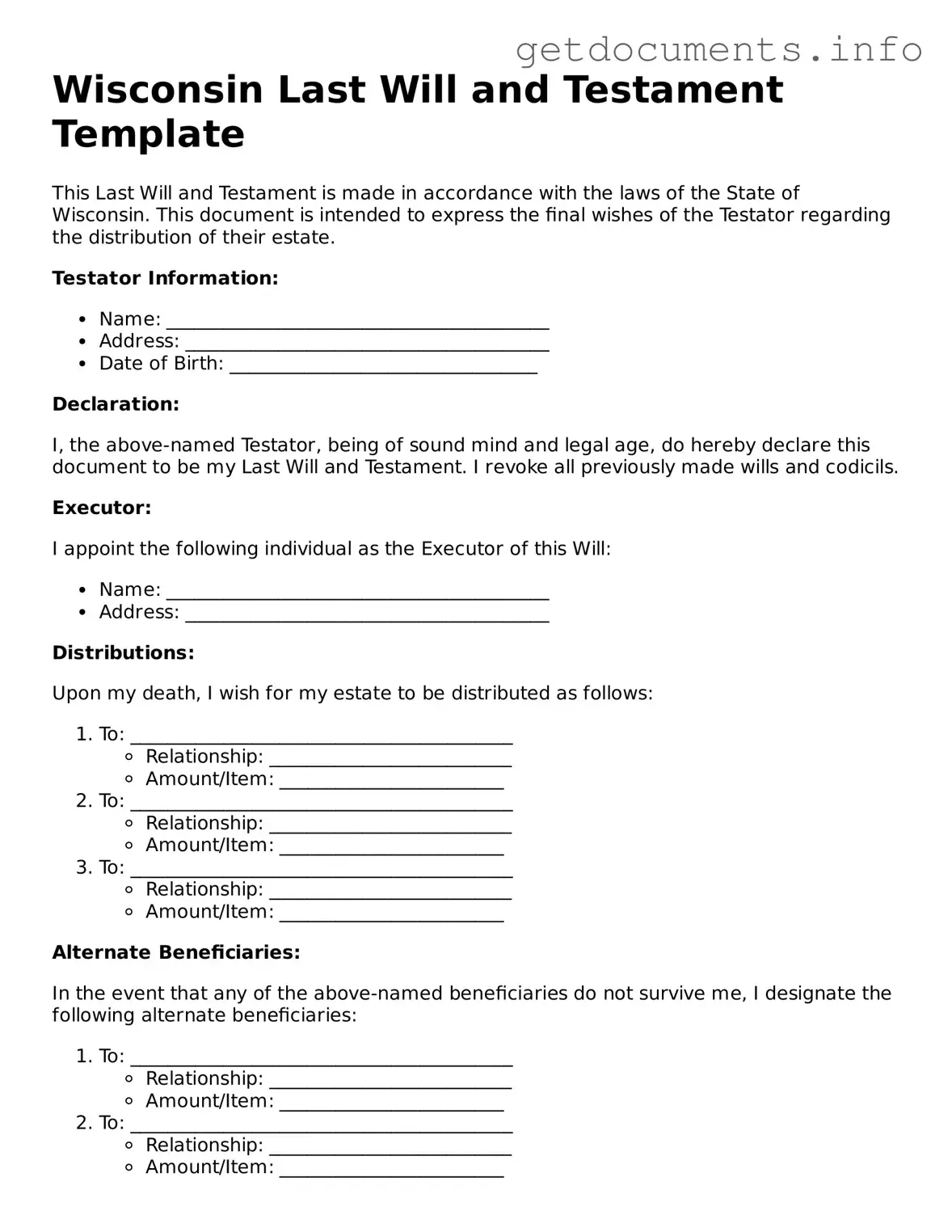Free Last Will and Testament Template for Wisconsin
A Wisconsin Last Will and Testament form is a legal document that outlines an individual's wishes regarding the distribution of their assets after their passing. This essential tool ensures that personal belongings, property, and other valuables are transferred according to the deceased's desires, providing clarity and peace of mind for loved ones. To take the first step in securing your legacy, consider filling out the form by clicking the button below.
Access Last Will and Testament Editor

Free Last Will and Testament Template for Wisconsin
Access Last Will and Testament Editor
Got places to be? Complete the form fast
Fill out Last Will and Testament online and avoid printing or scanning.
Access Last Will and Testament Editor
or
⇩ PDF File
